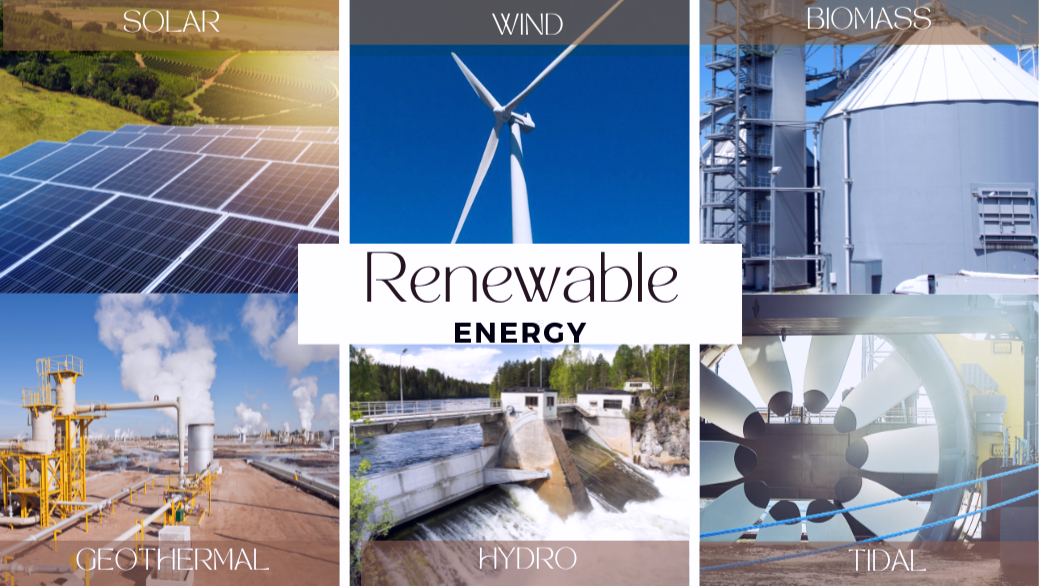
Renewable energy is the energy derived from natural resources that can be replenished over a short period without depleting, such as sunlight, wind, water, ocean waves, geothermal heat, and biomass. Renewable energy is environmentally friendly and helps reduce the impact of climate change compared to fossil fuels (such as coal, oil, and natural gas), which are limited in supply and release carbon dioxide, a major cause of global warming, when burned. Examples of renewable energy include
Solar Energy
Obtained from sunlight using solar panels or solar energy systems. It can be used to generate electricity, provide heating, and supply lighting.
Wind Energy
Produced by using wind turbines that convert the kinetic energy of the wind into electricity. Wind farms can be located on land or at sea.
Hydropower
Produced by harnessing the energy of naturally flowing water, typically from rivers or dams. This energy can drive turbines to generate electricity.
Biomass Energy
Derived from organic materials such as wood waste, animal manure, and plant debris. It can be used as fuel for generating electricity, providing heat, or powering vehicles.
Geothermal Energy
Comes from the heat stored beneath the Earth's surface. It can be used to generate electricity and provide direct heating.
Tidal and Wave Energy
Produced by harnessing the energy of ocean waves and tidal currents, typically using underwater turbines or systems that capture the movement of the sea surface.
Renewable energy
Renewable energy is important for reducing greenhouse gas emissions, diversifying energy sources, reducing reliance on imported energy, and creating economic opportunities. With continuous technological advancements, the efficiency and cost-effectiveness of renewable energy have increased, making it an increasingly attractive alternative to fossil fuels.